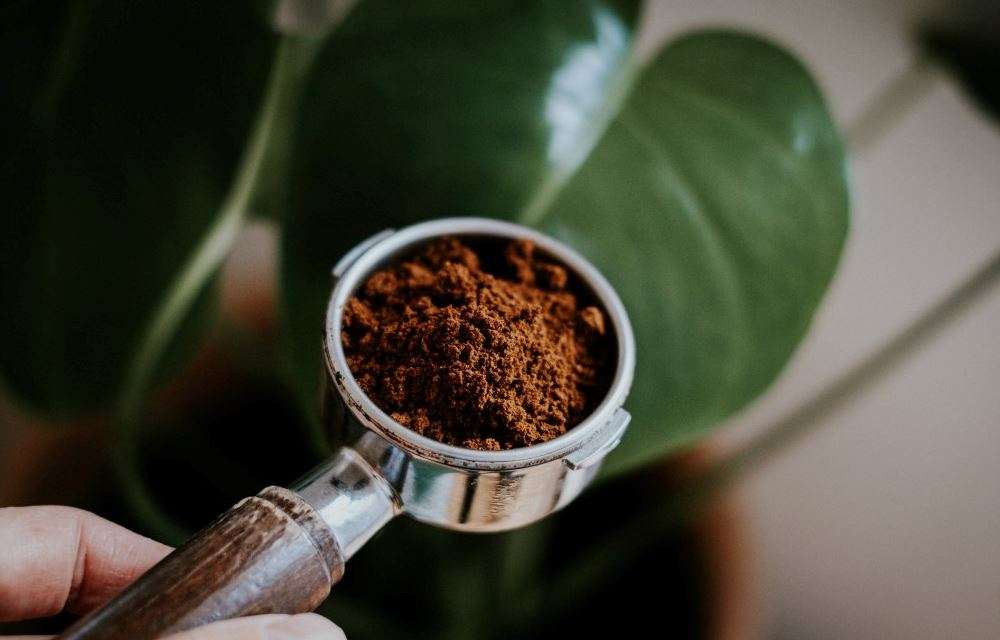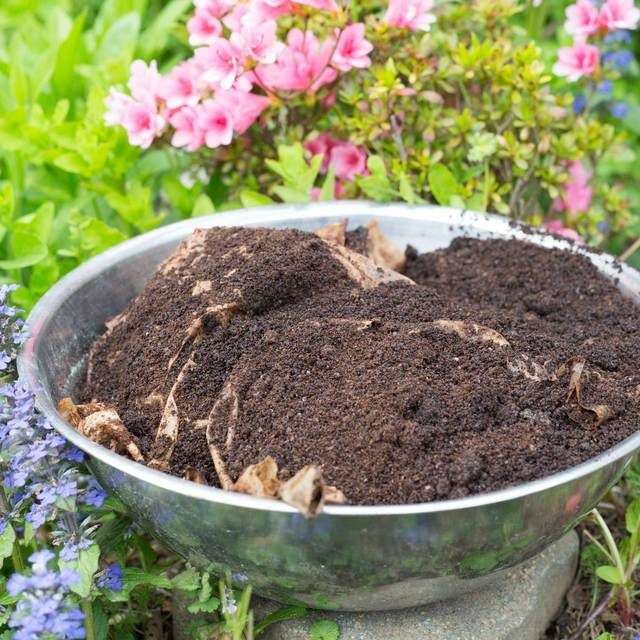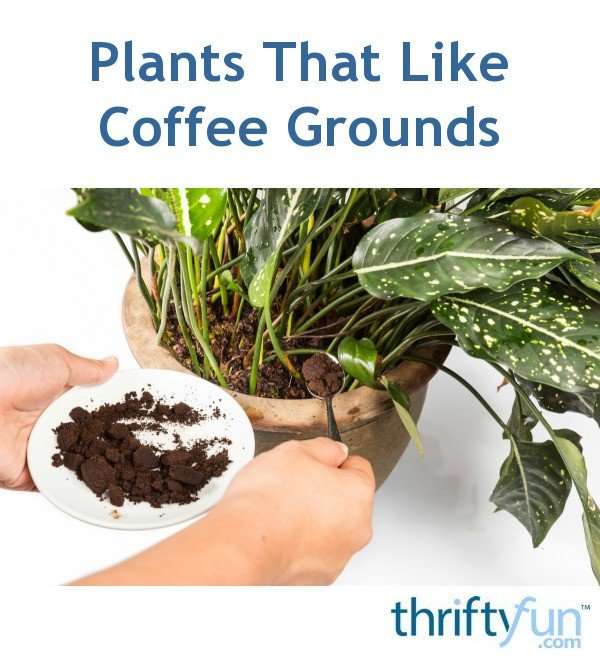Best Plants To Grow With Evergreens
The Spruce / Autumn Wood
Acid-loving and acid-tolerating plants come in a variety of sizes. Small flowering perennials, shrubs, ground covers, and even trees can thrive in acidic soil. This collection of plants can fill your garden with flowers, foliage, and autumn splendor.
Is Coffee Planting Suitable For Potted Plants
Coffee grounds are highly beneficial for indoor plants because of their high nitrogen content, micronutrients, pH level, and high-water retention. The perfect best approach to utilize coffee planting on your indoor plants is to compost!
Another good way of using coffee grounds is adding them to a homemade potting soil mixture.
Coffee grounds act as efficient fertilizers that can ensure outstanding results. Coffee soil has rich organic materials that are good for most plants If you use this popular method very well, you can boost your gardening experience.
Why Coffee Grounds Are Good For Plants
Asked by: Rebeca Towne
Coffee grounds contain several key minerals for plant growth nitrogen, calcium, potassium, iron, phosphorus, magnesium and chromium . They may also help absorb heavy metals that can contaminate soil . … To use coffee grounds as fertilizer, simply sprinkle them onto the soil surrounding your plants.
Also Check: Verismo Pods Walmart
How Often Should You Put Coffee Grounds On Plants
Just don’t add too many at once, because the acidity could bother your worms. A cup or so of grounds per week for a small worm bin is perfect. In addition to using coffee grounds in your worm bin, earthworms in your soil will also be more attracted to your garden when you use them mixed with the soil as fertilizer.
Tips For Gardening With Coffee Grounds

- Surrounding your acid-loving plants with coffee grounds is one way to keep them safe from slugs or snails. The mollusks wont be inclined to crawl over the abrasive grounds, so they work as a barrier around your plants.
- Some gardeners report that using coffee grounds in the garden is one way to keep the neighborhood cats from digging in your carefully tended flower beds or using them as a litter box.
- Only use cooked coffee grounds that have already been used in your garden. Uncooked coffee grounds wont give you the same benefits.
- Dilute coffee grounds with water before using them as a liquid fertilizer. The undiluted coffee grounds contain lots of caffeine , and caffeine can be harmful for plants.
- Coffee grounds contain lots of nitrogen, making them a great ingredient for compost. By composting your coffee grounds, you can use them all throughout your garden. Just make sure that the coffee grounds make up no more than 20 percent of your compost.
- If youre using too much coffee in the garden, youll see some of these negative effects: fungus growth, too much moisture in the soil, or stunted plant growth. Stop using coffee on plants that are showing these signs, and reduce your usage on other plants.
- Dont use too much when you give coffee grounds to your plant. About a tablespoon spread in a thin layer on the soil around the plant is plenty. You want just enough so that the soil around the plant is covered with a thin layer of coffee.
Also Check: Starbucks Verismo Price
Coffee Grounds Control Fungi And Bacteria
Coffee grounds show some remarkable properties in suppressing fungal rots and wilts. In studies, the establishment and growth of certain pathogenic fungi and bacteria was prevented. This was the case with cucumbers, spinach, and tomatoes, for example . No studies as yet show conclusive proof of their efficacy in disease suppression on other food crops, trees or shrubs.
Outdoor Plants That Love Coffee Grounds
We covered the indoor plants that like coffee grounds, but now we should have a look at the outdoor plants that prosper in coffee grounds.
Some of the outdoor plants that love coffee grounds include:
- Blueberries
- Spinach
Blueberries
When it comes to using coffee grounds on blueberries, you will sprinkle 4 to 5 cups beneath each blueberry bush. Once you have laid down the coffee grounds, you will rake them into the soil.
You can do this every two to four weeks. Pay attention to how your blueberries like the coffee grounds and give it to them accordingly. Blueberries prosper in acidic soil.
Raspberries
Raspberries prefer soil with a pH balance between 5.5 and 6.5. This makes them a good candidate for coffee grounds.
They love the nitrogen that it puts into the soil. Berries in general need a constant supply of nitrogen because it supports their shoots and root growth while promoting quality fruits.
Carrots
Any of the roots vegetables like the carrot do well with coffee grounds. You will have a more abundant harvest if you apply some coffee grounds after planting carrots. It gives them tons of nutrients
Working the coffee grounds into the soil will promote a nurturing environment for your carrots to germinate. Mix dried coffee into the soil, and it will keep the pests away as well since they dont like coffee grounds.
Strawberries
We wouldnt advise that you do this with seasonal strawberries, however. Coffee grounds work best with everbearing strawberries.
Lemon Trees
Radishes
Read Also: Caffeine In V8 Energy
What Plants Do Not Like Coffee Grounds
We can safely say that all the plants coffee grounds research covered caused stunted growth. So, they dont like this additive. We have mentioned several vegetables including lettuce, broccoli, radishes, and leeks.
Others include Chinese mustard, alfalfa, rosemary, lavender, and clover. Many consider non-edible plants like geraniums, asparagus ferns, violas, and sunflowers to be anti-coffee grounds garden style.
People frequently pinpoint tomatoes as vegetable plants that dont like coffee grounds. But its not exactly clear why, especially since many people encourage gardeners to use coffee grounds around tomatoes.
The Reality: This Is Falsely Based On A Study Using Concentrated Caffeine
In essence, no. This folk story is a misunderstanding and exaggeration – thought to have originated from a study where highly concentrated amounts of caffeine were sprayed directly on plant leaves and shown to kill slugs. But these caffeine levels were far, far above that which youd find in used coffee grounds . Theres no real evidence that slugs care about your soggy grounds at all
Don’t Miss: Folger Instant Coffee Caffeine Content
Use Coffee Grounds In Compost
Coffee grounds are excellent for use in compost in fact, composting yours is far better for your garden than putting them directly on your veggie beds. One of the main benefits of compost in your garden is opening up the soil structure, which aids aeration and microbial exchange.
If you know how to make compost then you’ll know that it’s made using both brown ingredients thats things like dried leaves, twigs, and newspaper and green materials, including grass clippings and dead flowers.
Coffee grounds can contribute to its green ingredients. Add the filter paper, too only if it’s unbleached which can be part of the mix and means youll be generating even less household waste.
Are Coffee Grounds Good For Tomato Plants
Tomatoes and coffee, they do seem to have a good thing to do together. Growing them together can be both fun and exciting.
You get to harvest fresh fruit from your tomatoes each year, then you also get to add some interesting flavors to those fresh fruits. One of the great things about growing these two together is that they make a great combination with ground coffee.
What exactly is coffee ground? Coffee grounds are basically mineral-rich coffee left after brewing a pot of coffee. You probably just know it by another name: gourmet coffee.
Coffee grounds add a lot of flavor and body to coffee. They are used mostly in gourmet coffee shops to bring out the richness of the bean.
Do they work well in growing tomatoes? Gourmet coffee grounds have lots of antioxidants, which can help tomatoes thrive.
The more antioxidants per pound of tomato, the better. This is one reason why whole-wheat coffee beans are often mixed with tomato pulp to make up for the lack of antioxidant-richness in most grocery store-ground beans.
Can you grow ground coffee in your garden? Yes, you can! They dont need an intense amount of sun to thrive. Tomatoes will grow just fine in small amounts of sunlight provided the ground is well-drained.
Are coffee grounds good for tomato plants? You bet they are! Just remember though, that ground coffee isnt the only thing you need to keep your tomatoes healthy. Water, sunlight, and nutrients are also essential for growing healthy tomatoes.
Also Check: How To Remove Coffee Stains From Car Seat
What Are Coffee Grounds And How Can They Be Used In Gardening
Coffee grounds are the waste that results from preparing or brewing coffee. Many coffee shops have huge amounts of coffee grounds going in the waste, which they will often happily give to customers for free to be used in their gardens.
Gardeners can use coffee grounds in a range of ways in the garden. They can be successfully used to improve soil quality, fertilize plants, and deter pests. However, there are some drawbacks to using coffee grounds in the garden, and some instances where they should be avoided. To learn how you can make use of this organic material that would otherwise be wasted, read on.
Tips For Using Coffee Grounds On These Plants

Taking the unorthodox route requires preparation and foresight on your part. Here are some suggestions for increasing the effectiveness of caffeine consumption in your plants: Combine the coffee grinds with the mulch as follows:
Coffee is high in various nutrients that can be beneficial to the growth of some of your plants. In other words, coffee is now a favorite of your plant as well!
You May Like: Who Sells Grinds Coffee Pouches Near Me
What Benefits Can Coffee Grounds Bring To Plants
Your indoor plants need nutrients to thrive, just like people. Many choose to compost their own rich, organic soil for garden beds and houseplants.
Using coffee grounds in your compost or mixed into your indoor soil mix is the best way to deliver nitrogen, micronutrients, and retain water within the soil.
Many houseplants require a good amount of water. These are the plants that coffee grounds are going to benefit most.
Because coffee grounds hold onto moisture so well, they act as a slow water delivery system to the roots. This means less frequent watering on your part.
Myth : They Prevent Fungal Disease
Fungal diseases can be devastating to your tomato plants. Often, by the time you notice a problem through leaf curling or yellowing, the disease is fairly established. Many diseases are fatal to a plant unless caught in the earliest stages.
In 2016, a publication called Plant Signaling and Behavior looking at the efficacy of concentrated levels of caffeine on fungal activity in soil. We know that fungal disease is often transferred to tomatoes by soil-contaminated water splashing back on the underside of leaves. If we could lessen the fungal activity, that would be great!
The problem is the same, however, with the slug issue mentioned before. Concentrated levels of caffeine are just not possible in coffee grounds. Amending soil or adding them to compost will likely all help the general health of your soil, but that wont achieve the same results as the study.
Other studies like this one, have looked at how different soil amendments increase the microbial activity in your soil, thereby suppressing fungal diseases. The study, unfortunately, only looked at one type of disease Fusarium Wilt and only in spinach. So while the results were encouraging, the potential impact is unknown for other plant species or other fungal diseases.
Myth or Fact?
You May Like: How To Get Coffee Stain Out Of Jeans
You Want Your Compost To Be A Combination Of Green Matter And Brown Matter
Both are named by the color of the ingredients:
Green matter includes items such as tea bags, grass clippings, and veggie scraps.
Brown matter includes coffee grounds, shredded newspaper, and dried leaves.
Oh, and if you see earthworms in your compost pile, thats a good thing. As I mentioned, they eat the organic materials to speed up their decomposition so you can use your compost sooner.
Do Try Making Your Own Compost
Even if you have no intention of adding coffee grounds to your compost pile, you should have a compost pile nonetheless. Making your own compost is maybe not the cleanest or nicest task indoor gardeners can do, but its super satisfying.
You get to choose exactly what youre feeding your houseplants, giving you more control over their care.
Also Check: Do Mcdonalds Frappe Have Caffeine
Grow Your Own Oyster Mushrooms
It turns out that used coffee grounds provide a wonderful foundation for these gastronomic delights! Oyster mushrooms are the most straightforward mushrooms to cultivate. The majority of individuals, on the other hand, grow them on pasteurized straw. If, on the other hand, you use coffee grounds to foster plant development, the process of brewing your coffee instantly pasteurizes your mushroom substrate! Simply fill a container with soil and add your coffee grounds to get started, then add some mushroom spawn to further your growth.
Coffee Grounds In Your Garden: The Bottom Line
Using coffee grounds in your garden has its share of pros and cons, and we hope this article has answered your questions. Coffee can impede plant growth, but it may also keep away certain pests or alter the pH of your soil in a useful way. Plants like carrots, roses, cabbage, and hydrangeas like coffee grounds but avoid using them on tomatoes and clovers. If youre not sure, the compost bin is always a good place for spent coffee grounds! The bottom line? Coffee grounds for plants can supercharge your garden but this trick will only work on certain plants.
More great reads:
Don’t Miss: How Much Caffeine In Large Mcdonalds Iced Coffee
Can You Put Coffee Grounds In Potted Plants
This isn’t recommended. As coffee grounds can easily become compact, adding them directly to the potting soil of potted plants could create a thick layer. This will trap the plant of moisture and can cause fungal overgrowth.
‘Instead of direct application, only use a thin ½ inch layer before covering with a four inch layer of mulch. Coffee grounds work best as mulch when mixed with organic matter. Only do this if your plants are large, small potted plants wont benefit from the grounds as they have less surface area to retain moisture.
House Plants That Like Coffee Grounds : Heres A Complete List

A cup of coffee in the morning is something everyone enjoys, and the fact that you can do it next to a small green plant is simply icing on the cake. In the event that you have home plants, you will be pleased to hear that you may locate a suitable location for your leftover coffee grounds. Coffee and plants are two terms that you have probably never heard together in a sentence before. But they do go hand in hand. However, if youve heard anything about the advantages of coffee grounds on some houseplants, you should check out this post.
Recommended Reading: Where Can I Buy Grinds Coffee Pouches In Stores
What Coffee Grounds Do
If you tune into the grounds-for-gardens channel, youll learn that people count on used coffee grounds to do all kinds of things. Spread on planting beds like mulch, grounds are said to repel cats, fertilize soil, kill slugs and keep weeds at bay. A coffee mulch is also rumored to beckon earthworms and acidify soil. Other gardeners work coffee grounds into beds, swearing it aerates and acidifies soil.
Stimulate Hair Growth And Strip Buildup
Shampoos and styling products often leave residue behind that can dull and weigh down your hair.
Exfoliating your scalp with coffee grounds can help remove buildup and dead skin cells.
Whats more, several test-tube studies have found that caffeine, such as that in used coffee grounds, stimulates human hair growth .
Similarly, human and animal studies have found that applying caffeine to the skin increases blood flow and accelerates hair growth .
Before you shampoo, simply grab a handful of coffee grounds and massage them into your scalp and hair for a few minutes. Then wash and rinse as you normally would.
Do this one to two times per week, or as needed.
Summary Exfoliating your scalp with used coffee grounds can help remove dead skin cells and product buildup and may even speed up hair growth.
Read Also: Voltesso Recipe